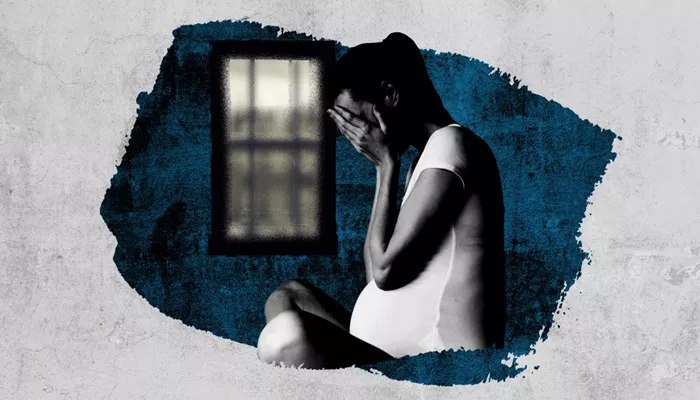A Texas teenager has died after pregnancy complications were worsened by the state’s abortion ban, which prevented doctors from providing life-saving medical treatment.
On October 28, 2023, 18-year-old Nevaeh Crain, who was six months pregnant, began experiencing severe symptoms on the day of her baby shower. She woke up with a headache, followed by a fever, nausea, and vomiting. Despite feeling unwell, Crain continued with the event, but by 3 p.m., her family decided to take her to the emergency room.
Crain’s boyfriend, Randall Broussard, drove her to a nearby hospital where they waited for hours. Staff reportedly gave her a plastic pan to vomit into as they waited for care. After tests, Crain was diagnosed with strep throat, but her pregnancy was not evaluated. She was discharged with a prescription for antibiotics.
Later that night, Crain woke her mother, Candace Fails, complaining of intense stomach pain. Fails rushed her daughter to another hospital, where an OB-GYN found that Crain had a fever of 102.8°F and a high pulse, signs of sepsis—a serious infection that can lead to organ failure and death. Sepsis affects millions of people in the U.S. each year, causing nearly 270,000 deaths, according to the Centers for Disease Control and Prevention (CDC).
Crain was given fluids and antibiotics, but her condition continued to worsen. In addition to strep throat, she had a urinary tract infection, but doctors focused only on monitoring her pregnancy, confirming her baby’s heartbeat. Despite her deteriorating health, Crain was discharged again with more antibiotics.
Fails expressed frustration, noting that Crain had to be taken home in a wheelchair because she could not walk.
The following morning, Crain, still in severe pain, was rushed back to the hospital after experiencing heavy bleeding. She was miscarrying. Medical staff confirmed that the fetus no longer had a heartbeat, but under Texas’ near-total abortion ban, doctors were unable to perform any procedure unless Crain’s life was at immediate risk.
Fails recalled pleading with doctors, urging them to act. However, Texas’ abortion law left doctors in a legal bind, as they could not intervene unless Crain’s condition was life-threatening. “Until we can be absolutely certain this isn’t a normal pregnancy, we can’t do anything,” Dr. Tony Ogburn, an OB-GYN in San Antonio, explained to ProPublica.
More than two hours after Crain’s arrival, doctors performed a second ultrasound and confirmed the fetus had died. Crain was unable to sign consent forms due to extreme pain, so her mother signed the release for an emergency procedure. However, doctors ultimately decided it was too late to perform a dilation and curettage (D&C), fearing Crain was bleeding internally due to a severe complication of sepsis known as disseminated intravascular coagulation.
Fails described her daughter sitting up in bed, her body covered in black blood, as Crain told her, “You’re strong, Nevaeh. God made us strong.”
Crain died hours later in the intensive care unit.
After reviewing Crain’s medical records, ProPublica consulted with medical experts who believe that if Crain had received timely and appropriate care, her chances of survival were higher. Since her death, Candace Fails has sought legal action against the hospitals, but under Texas law, she must prove “willful and wanton negligence” in emergency care cases. So far, she has been unable to find a lawyer willing to take her case.
Related Topics:


